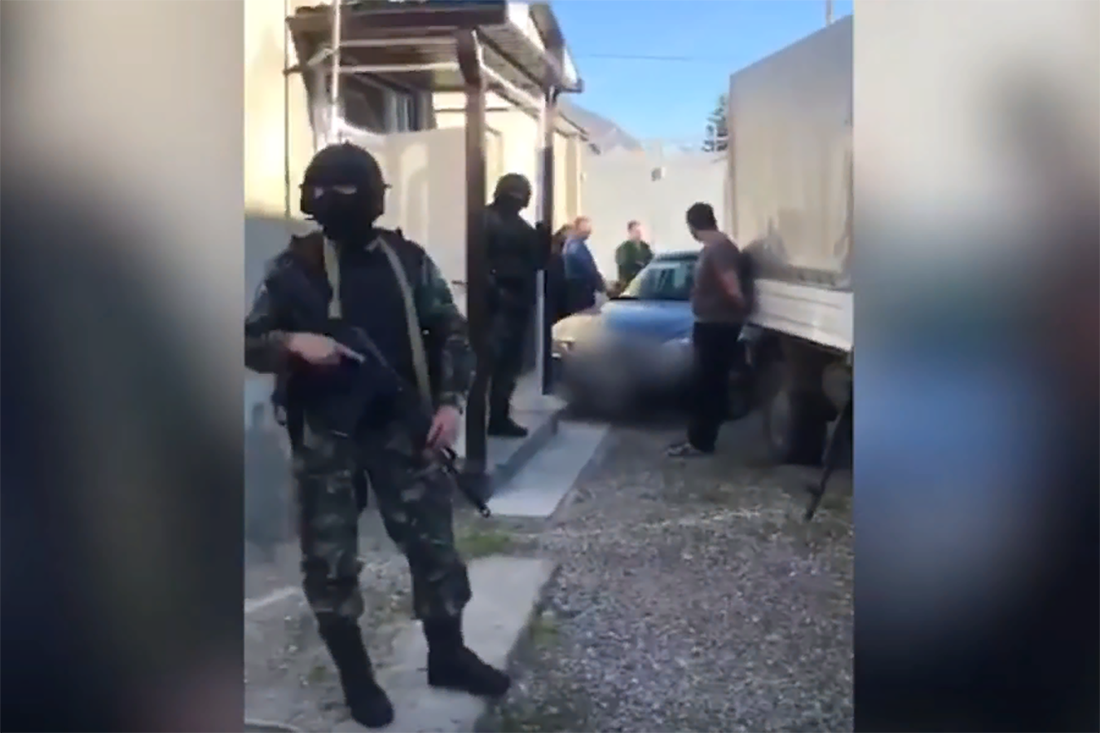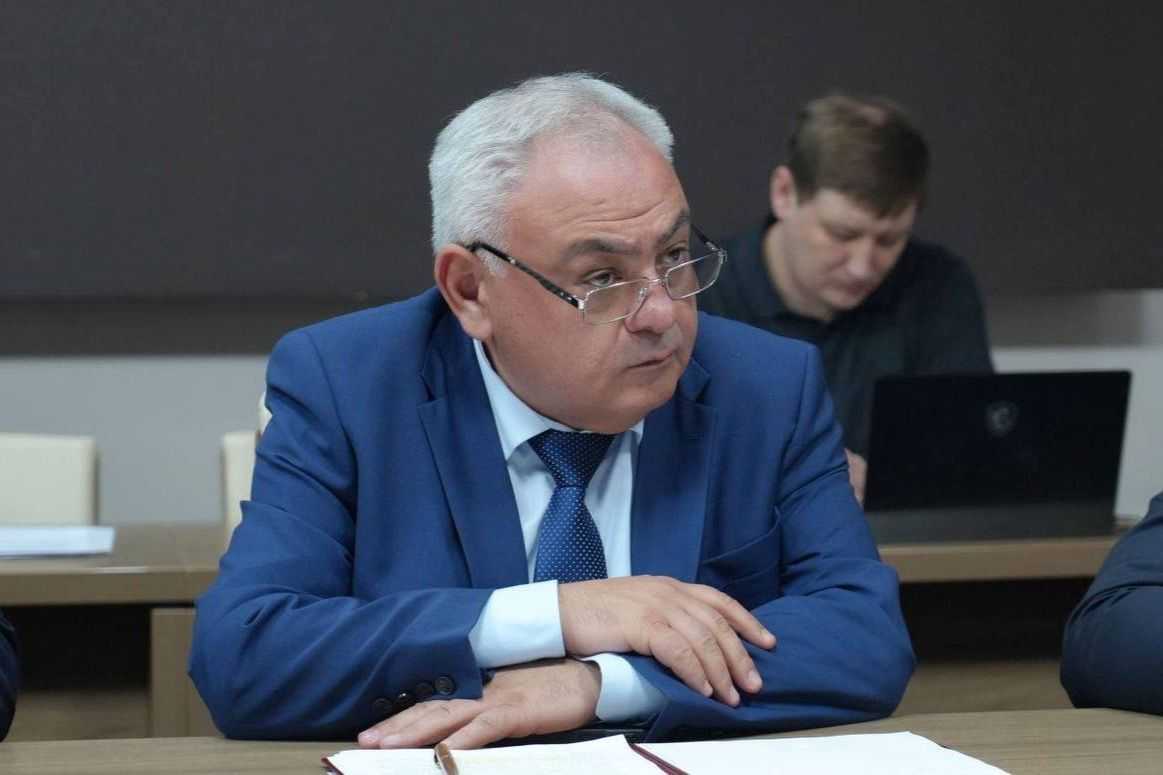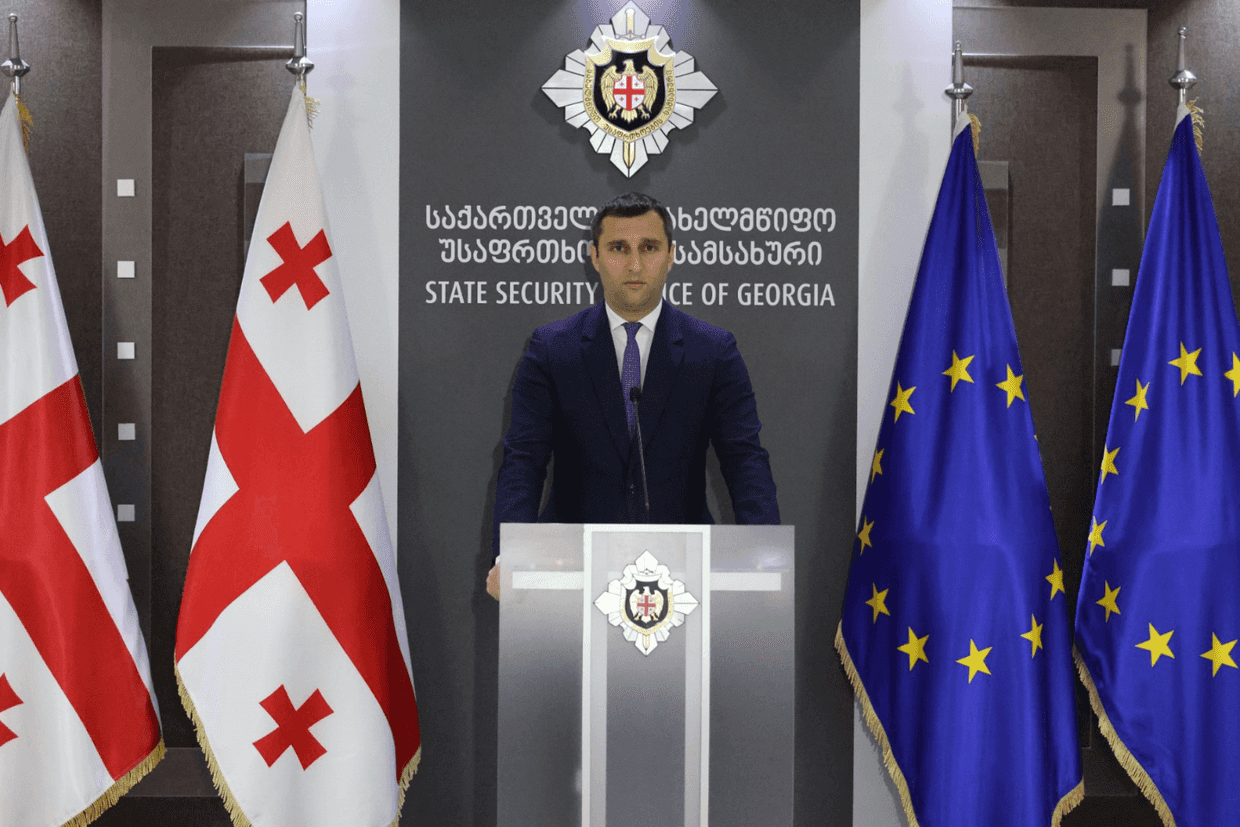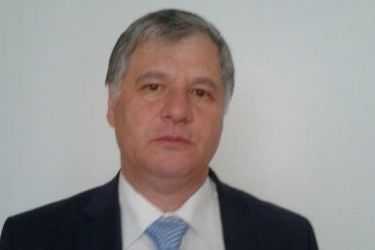

Twelve high-ranking police officials in the Russian republic of Kabardino-Balkaria have been arrested on suspicion of participating in a criminal community.
On 30 May, Russian Interior Ministry spokesperson Irina Volk announced on Russian TV channel REN-TV that officers from the Internal Security Department of the Ministry of Internal Affairs ‘conducted a special operation to suppress the activities of a criminal group consisting of officials of the Ministry of the Interior of Kabardino-Balkaria’. According to her, 12 people were detained during the operation.
The searches and detentions of police officers lasted throughout the entire day on 30 May in Nalchik, the capital of Kabardino-Balkaria, and in other regions of the republic. More than 30 searches were conducted in the offices and houses of the suspects.
Criminal community
The website of the Russian Investigative Committee reported that the North Caucasus Investigative Committee has opened a criminal case against a number of officials from the Ministry of Internal Affairs of Kabardino-Balkaria. The Deputy Head of Kabardino-Balkaria’s Traffic Police, the Head of the Administration of the Ministry of Internal Affairs for Nalchik, and the heads, deputy heads, and other employees of the territorial divisions of the traffic police and the police were among the detainees.
Yuriy Nagoyev, a former deputy head of the traffic police administration in Kabardino-Balkaria who is suspected of organising a criminal community, was transferred to the neighbouring Stavropol Krai, where he is currently under investigation.
According to investigators, the criminal community was active in Kabardino-Balkaria in 2017–2018, providing safe transportation of illegal alcoholic beverages in exchange for bribes. According to the Investigative Committee of Russia, bribes of at least ₽42 million ($647,000).
Caucasian Knot reported that the detained police officers ‘covered up’ the illegal transportation of counterfeit alcohol-containing products along the Kavkaz Federal Highway and through the Malka checkpoint on the administrative border between Kabardino-Balkaria and Stavropol Krai. They reported that one suspect was still at large.
The detainees are suspected of using their official position and receiving bribes as an organised group on a large scale. They face up to 20 years in prison if convicted.
‘Common practice’
An officer from the Kabardino-Balkaria traffic police who asked not to be named told OC Media that he himself had been involved in transporting illegal alcohol in the past, and that this was a common practice in the 1990s.
‘[Traffic] inspectors defended the goods and drivers themselves from racketeers and extortion at traffic police posts, and the owners paid them for it — both the accompanying policemen and the head of the district traffic police for the route [were paid]’.
‘We, then still young inspectors, accompanied whole chains of trucks. One car with [traffic] inspectors drove in front of the convoy and the other behind it’, he said.
According to him, this income-generating business was soon ‘taken over by the highest leaders’. ‘They paid their bosses, and those paid theirs’. He said he doubted the arrests would affect the situation, and said the practice of soliciting bribes for the unobstructed passage of illegal alcohol in the region would continue.
‘Some people will leave [from these positions], others will replace them, and everything will return to normal’.
Aslan Beshto, a local social activist and head of the Kabardian Congress, told OC Media that the situation emerged due to high excise duties on alcohol and ‘over-control by the state’.
He said that those arrested were likely trying to earn a ‘decent living’ by fitting into the ‘existing system’.
Khachim Berbekov, who owned a now-bankrupt vodka distillery in Kabardino-Balkaria, told OC Media that pressure from the local government, including through taxes and demands by certain officials that owners hand over a share of their profits, drove many distilleries either out of buissness or underground.
‘The production will remain, they will not stop producing vodka, and the trucks will go to Russia just as before, but the vodka money will no longer come to the budget’, Berbekov said.
‘What problem do they want to solve by putting these policemen behind bars? If the state wants to solve the problem of corruption, then why does it create such fertile conditions for it, why does it prohibit what should be legalised? Why does it not think about creating legal production, about creating jobs?’, Berbekov said.
A spokesperson for the traffic police in Kabardino-Balkaria declined to comment on the arrests.









